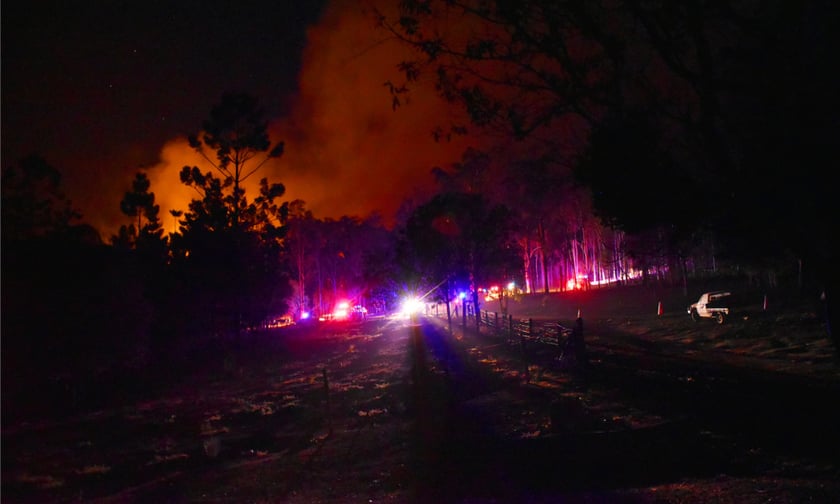

The wildfires that raged through Quebec between May and July were made significantly more likely by the impacts of climate change, scientists have found.
New analysis by World Weather Attribution (WWA) indicated that rising global temperatures made the catastrophe twice as likely to occur, while also intensifying flames by up to 50%.
The group, composed of a global team of scientists specializing in studying the connection between climate change and extreme weather events, said that the situation in the Eastern Canada province underscores the role of climate change in exacerbating the conditions conducive to wildfire.
“Climate change is greatly increasing the flammability of the fuel available for wildfires,” Yan Boulanger, research scientist at Natural Resources Canada and one of the study’s authors, told Reuters. “This means that a single spark, regardless of its source, can rapidly turn into a blazing inferno.”
As global temperatures increase, heatwaves and droughts have become more frequent and intense. These conditions dry out vegetation, turning them into ready fuel sources that can ignite and burn quickly.
Climate change has also caused precipitation patterns to shift, affecting how wildfires can be naturally deterred.
“This year, high temperatures led to the rapid thawing and disappearance of snow during May, particularly in eastern Quebec, resulting in unusually early wildfires,” said co-author Philippe Gachon, who is also affiliated with Université du Québec à Montréal.
WWA’s report analyzed comprehensive weather data, incorporating variables such as temperature, wind speed, humidity, and precipitation. Advanced computer models were also used to assess the extent to which climate change has modified fire weather conditions, comparing current data to preindustrial climate norms.
The type of intense fire weather seen from May to July is considered a moderately extreme event in today’s climate, according to WWA. Such an event is expected to occur once every 20 to 25 years, meaning that there is a 4-5% chance that it will happen in any given year.
Canada has been going through what experts have been calling an unprecedented fire season. With some 14 million hectares burned so far, the season has surpassed the four-decade average of 2.3 million hectares reported by the Canadian Interagency Forest Fire Centre.
The impact of this year’s fire season is expected to break more records, as parts of British Columbia and the Northwest Territories continue to deal with hundreds of actively burning wildfires.
What are your thoughts on this story? Feel free to comment below.
